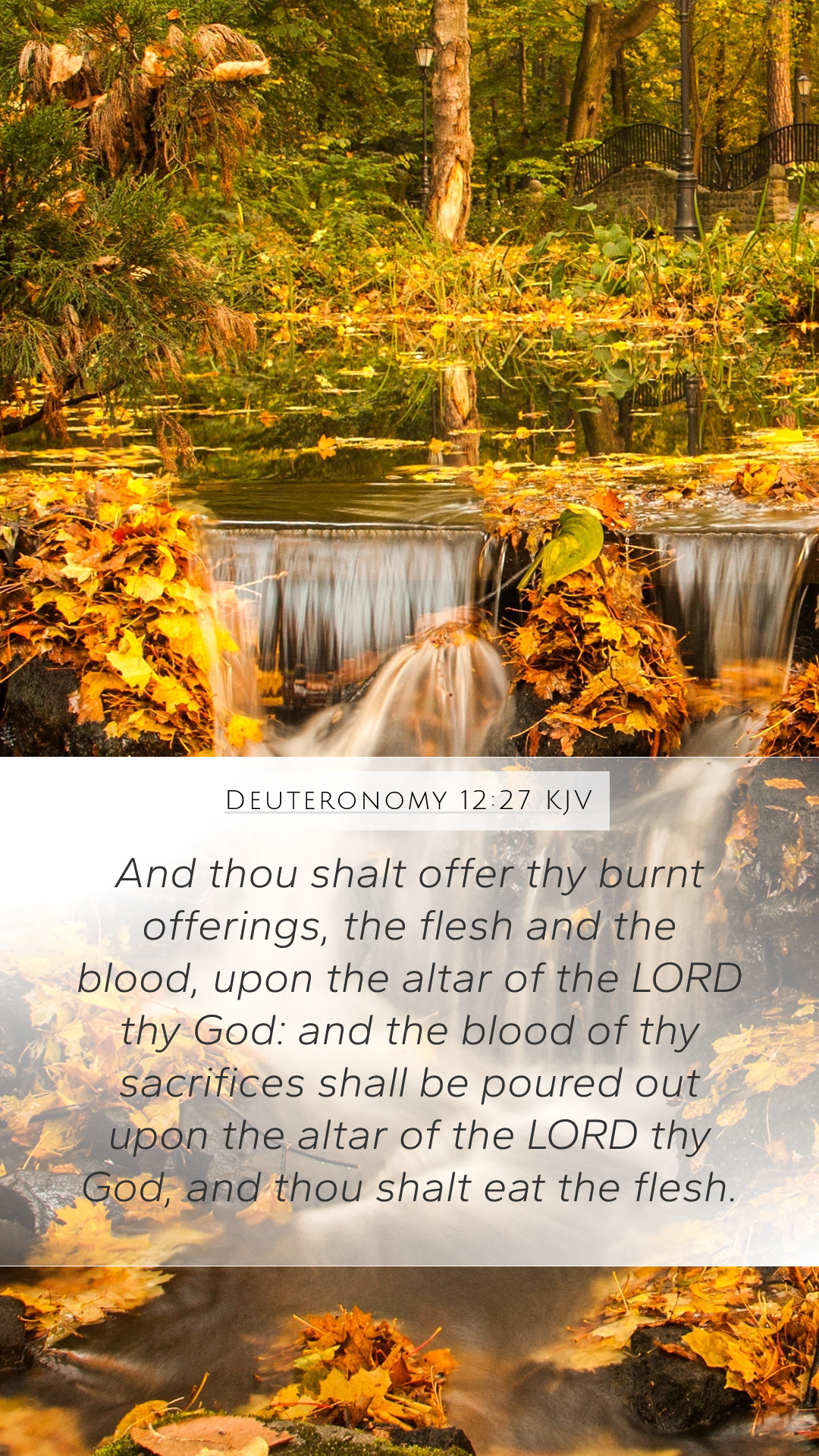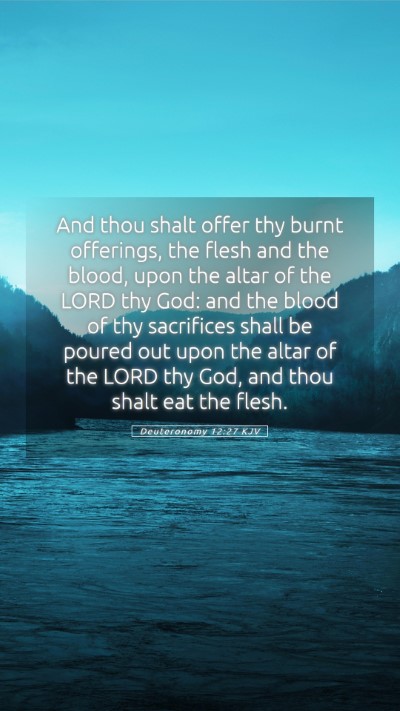Understanding Deuteronomy 12:27: A Comprehensive Bible Verse Commentary
Bible Verse: Deuteronomy 12:27
Verse: "And thou shalt offer thy burnt offerings, the flesh and the blood, upon the altar of the Lord thy God: and the blood of thy sacrifices shall be poured out upon the altar of the Lord thy God, and thou shalt eat the flesh." (KJV)
Meaning and Interpretation
The verse Deuteronomy 12:27 holds significant importance in understanding the sacrificial system prescribed by God in the Old Testament. It emphasizes the act of offering burnt offerings, a central form of worship, which includes specific instructions regarding the handling of flesh and blood. Here, we delve into a synthesis of insights from public domain commentaries, particularly those of Matthew Henry, Albert Barnes, and Adam Clarke, providing a rounded perspective on the verse's meaning.
Significance of Sacrifices
According to Matthew Henry, the burnt offering symbolizes complete surrender and dedication to God. It illustrates that the offerings were not just acts of ritual but were meant to express devotion and acknowledgment of God’s sovereignty. Each offering involved the complete burning of the flesh, which symbolizes the totality of one’s devotion, signifying that nothing should be withheld from God.
Albert Barnes emphasizes the blood's role, indicating that the pouring of blood on the altar is central to the sacrificial ritual. Blood represents life and serves as a vital element in atonement for sin. Sacrifice was a means through which the people could express repentance and seek reconciliation with God.
Adam Clarke expands this understanding by noting the communal aspect of these offerings. The act of consuming the flesh signifies the fellowship between the offeror and God. It shows the intimate relationship established through sacrificial acts, implying that worship is about relationship more than mere obligation.
Covenant Context
This verse occurs within the larger context of the covenant relationship that Israel has with God. As outlined by these commentaries, sacrifices were not only about fulfilling a law but were intrinsically tied to the identity and worship of the Israelite people. It represented their commitment to the covenant established at Sinai, where obedience was paramount.
Practical Application
In applying this scripture to daily life, believers today can reflect on what it means to make sacrifices in their relationship with God. While the specific practice of animal sacrifice is no longer applicable under the New Covenant, the underlying principle of offering oneself—symbolically giving up one’s time, resources, and sin—is still relevant. The act of offering sacrifices in the present can translate to self-denial, service, and worship in various forms.
Related Bible Cross References
- Leviticus 1:3: Details the specifics of burnt offerings.
- Exodus 29:18: Discusses the process and meaning of sacrifices in priestly ceremonies.
- Hebrews 13:15-16: Explains how New Testament believers can also offer sacrifices of praise.
Conclusion
The exploration of Deuteronomy 12:27 through the lenses of Matthew Henry, Albert Barnes, and Adam Clarke highlights the depth of meaning found in the practice of sacrifices within the Israelite worship system. The verse calls believers to appreciate the principles of total devotion, atonement through blood, and the intimate relationship forged through worship. Ultimately, understanding this scripture encourages an attitude of reverence, gratitude, and the willingness to offer oneself to God in all aspects of life.
As you engage with this verse, consider joining bible study groups or utilizing various bible study tools to deepen your understanding of scripture. Whether online or in-person, these resources provide opportunities for bible study lessons and discussions that can enrich your faith journey.


